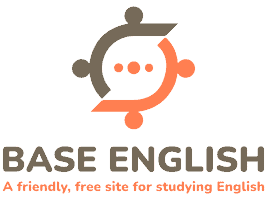중상급 레벨 레슨

New Year’s Resolutions (Upper-Intermediate – C1)
New Year’s resolutions are personal commitments individuals make at the start of a new year to bring about positive…

I Used To Be Lazy (Upper-Intermediate – B2)
In this free English lesson for upper-intermediate language learners, we learn how to use the expression “used to be”. Try the lesson!

The Gift of the Magi (Upper-Intermediate – B2)
“The Gift of the Magi” is a timeless short story by O. Henry that explores the true meaning of selfless love and sacrifice…

Christmas Number One (Upper-Intermediate – B2)
The announcement of the Christmas Number One in the United Kingdom is a highly anticipated annual music…

KFC for Christmas (Upper-Intermediate – C1)
In Japan, the tradition of enjoying KFC during Christmas has intriguing roots dating back to the 1970s. Initially spurred…

Bucket Lists (Upper-Intermediate – C1)
A bucket list is a collection of dreams, goals, and experiences that an individual aspires to achieve within…

Thanksgiving Dinner (Upper-Intermediate – C1)
Thanksgiving is a time for friends and family to gather and share delicious food. The centerpiece of a traditional…

Thanksgiving (Upper-Intermediate – C1)
Thanksgiving is a national holiday celebrated on various dates in the United States, Canada, Grenada, Saint Lucia…

Black Friday (Upper-Intermediate – C1)
Black Friday is a colloquial term for the Friday after Thanksgiving in the United States. It traditionally marks the start of the…

Climate Action Day (Upper-Intermediate – C1)
Climate Action Day is a global initiative aimed at raising awareness about the pressing issues of climate change and the urgent need…
Mastering English: A Comprehensive Guide to Upper-Intermediate Proficiency
Achieving an upper-intermediate level of English proficiency is a significant milestone on the language learning journey. At this stage, you can communicate effectively on a wide range of topics, express opinions, and understand complex texts. To help you reach this level and beyond, we’ve compiled a comprehensive guide with valuable tips and resources, including various websites with free upper-intermediate English lessons.
Set Clear Goals
Before getting started, be sure to establish clear and achievable language learning goals. Having specific objectives will keep you motivated and focused on your journey. Begin by defining the purpose of your language studies, whether it’s for travel, career advancement, or personal enrichment. Once you have a clear idea of your purpose, break down your goal into small, manageable steps, such as mastering specific grammar rules, expanding your vocabulary, or improving pronunciation. Ensure that your goals are specific, measurable, achievable, relevant, and time-bound (SMART).
Be Consistent
When it comes to learning a language, consistency is key. Consider creating a study schedule that aligns with your daily routine and allows for regular practice. Routinely assess your progress and adjust your goals accordingly. To ensure that your language development is well-rounded, be sure to diversify your goals to include all four language skills: reading, writing, listening, and speaking.
Remember that it’s important to remain flexible. Adapting your goals as your language skills evolve will contribute to a more effective and rewarding learning journey. Lastly, don’t forget to celebrate achievements, no matter how small or insignificant they may seem.
Immerse Yourself in English Media
Surround yourself with the English language as much as possible. Watch English movies, TV shows, and documentaries. Listen to English music and audiobooks. Immersing yourself in the language will enhance your listening skills and expose you to different accents and expressions.
In recent years podcasts have become exceedingly popular, and many of these are well-suited to upper-intermediate-level language learners. Among the most highly regarded English learning podcasts is the BBC’s, The English We Speak. This short, entertaining podcast introduces common phrases, idioms, and expressions used in everyday English. Each episode focuses on a specific phrase, explaining its meaning and providing examples in context. The upper-Intermediate English lessons found on the website are a great way to deepen your understanding of colloquial language.
Another useful podcast is the ESL Pod. Like The English We Speak, the ESL Podcast has been created specifically for English language learners. Each episode features a dialogue or monologue followed by an in-depth explanation of vocabulary, expressions, and cultural factors. The podcast covers a variety of topics, making it suitable for learners seeking to broaden their knowledge and improve listening comprehension.
Read Extensively
Reading is a powerful tool for language development. Choose a variety of materials, including magazine articles, novels, and newspapers. Focus on texts that match your current proficiency level but also challenge you. This will expand your vocabulary and improve your comprehension skills.
To this point you may have only read materials from English learning textbooks or worksheets. For those who have reached an upper-intermediate level of proficiency, it’s time to consider longer and more challenging texts. Many students report benefiting from reading English novels as a part of their study program.
The choices of what to read are endless, but some books are uniquely popular among English language learners. One such book is The Curious Incident of the Dog in the Night-Time by Mark Haddon. The story is told from the perspective of a 15-year-old boy with Asperger’s syndrome and centers around the mysterious death of a neighbor’s dog. Although the sentence structure and vocabulary are quite simple, the story explores complex emotions and thought processes. Overall, it is an excellent book for upper-intermediate English learners to increase their language skills without exhausting themselves.
Another book that is popular with language learners is the philosophical and inspirational novel The Alchemist by Paulo Coelho. The story follows the journey of a young shepherd named Santiago on a quest for self-discovery and fulfillment. The language is clear and descriptive, making it suitable for upper-intermediate learners looking to explore more profound themes while expanding their vocabulary.
Utilize Language Learning Apps
Take advantage of language learning apps to make your study sessions more interactive and enjoyable. Apps like Duolingo, Memrise, and Babbel provide a gamified approach to language learning that has proven popular with millions of language learners around the world. Although language learning apps are most popular among beginners, there are some that are suitable to the needs of upper-intermediate level learners.
Quizlet is popular software application with customizable features that make it suitable to the specific needs of upper-intermediate learners. The platform allows users to create and access a wide array of study materials, including flashcards, quizzes, and interactive games. It is ideal for reinforcing vocabulary, idiomatic expressions, and complex grammatical structures. Additionally, the platform’s user-generated content offers a diverse range of language materials, exposing learners to varied contexts and expressions.
Join Online Communities
Connect with other English learners through online communities and forums to facilitate discussions, resource sharing, and peer support. Engaging with a community can provide motivation and valuable insights into the language learning process.
Online language exchange communities are invaluable for upper-intermediate level English language learners seeking to refine their skills through real-world conversations. Websites like Tandem and ConversationExchange connect language enthusiasts worldwide, providing a platform to connect with native English speakers looking to learn your language in exchange.
These communities offer a diverse range of language partners, allowing learners to engage in meaningful conversations, receive constructive feedback, and immerse themselves in authentic language use. The structured format of these platforms often includes voice and video calls, text messaging, and even in-person meet-ups, enabling learners to practice various aspects of communication. The cultural exchange aspect enriches the language learning experience, fostering a deeper understanding of idiomatic expressions and colloquialisms. By participating in online language exchange communities, upper-intermediate learners can bridge the gap between textbook knowledge and real-world application, enhancing their fluency and confidence in English.
Search for Free Online Resources
Not everyone who is interested in learning English has the resources to spend on textbooks, classes, or expensive online services. As such, learners are always on the lookout for free websites that can help them to achieve the goal of becoming a proficient English user.
For upper-intermediate level learners on a tight budget, consider exploring BBC Learning English. This platform provides an excellent selection of multimedia materials, all of which are designed for upper-intermediate and advanced learners of English. The podcast and associated website are valuable sources of grammar tips, idiomatic expressions, and authentic listening content.
Another website that provides a large selection of free upper-Intermediate English lessons is Breaking News English (sometimes referred to as BNE). Each Breaking News English lesson is provided at multiple levels of difficulty, making it easy to find content that is suitable to your current level of proficiency. There are seven levels in total, ranging from easy (Level 0) to hard (Level 6). The website has been around for many years, and new lessons are added several times a week.
No discussion of free online lessons for upper-intermediate learners would be complete with mentioning Base English. The site is free, friendly and continuously growing. The lessons you’ll find on Base English are specially designed to encourage development across all four language skills: reading, writing, listening, and speaking. There are also dozens of lessons for preparing learners for popular proficiency tests such as TOEIC Listening and Reading. All of these lessons are completely free and accessible from all major web browsers and devices.
결론
Reaching an upper-intermediate level of English proficiency is an achievable goal with dedication and the right resources. Set clear goals, practice consistently, immerse yourself in English media, and utilize a combination of resources, including Base English. By following these tips and incorporating these free resources into your routine, you’ll find yourself confidently navigating the nuances of the English language in no time. Remember, language learning is a journey, so enjoy the process and celebrate your progress along the way.

